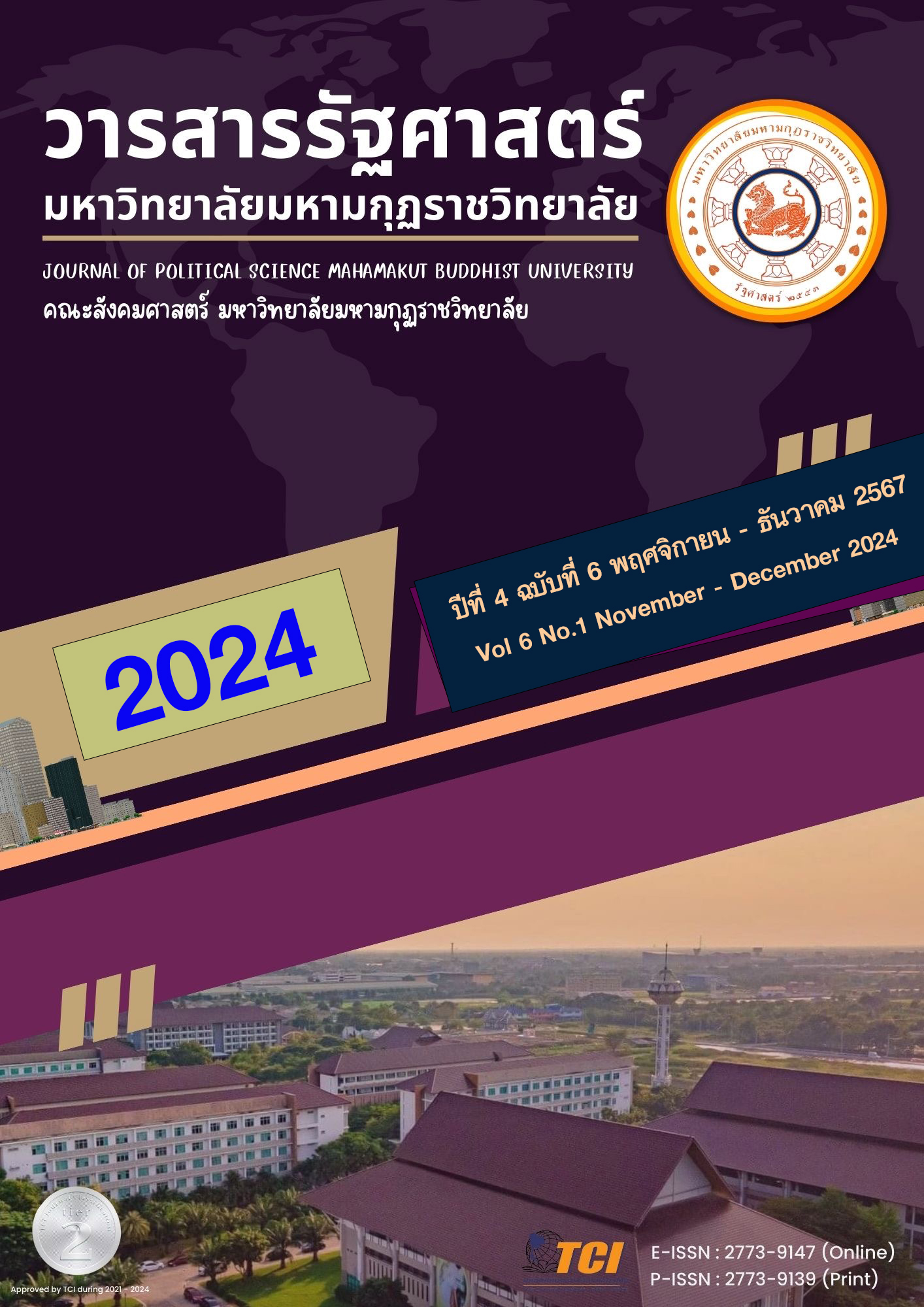ADDRESSING INEQUALITY IN DEVELOPING COUNTRIES: AN INTEGRATED PERSPECTIVE AND SUSTAINABLE DEVELOPMENT APPROACH
Main Article Content
Abstract
Inequality in developing countries is a complex and challenging issue, particularly in an era of rapid technological change and intense globalization. Despite continuous economic growth, the gap between population groups continues to widen, affecting economic development, society, and citizens' quality of life. This article aims to examine approaches to addressing inequality in developing countries through an integrative perspective by analyzing key causes of inequality stemming from colonial historical legacies, unfair economic structures, skill-biased technological change, and globalization forces that intensify these problems. The study finds that inequality has broad impacts on economic development, innovation, social stability, and citizens' quality of life, particularly in terms of access to public services, economic opportunities, and risks of domestic conflict. This article therefore presents the "Integrated Development Model for Inequality Reduction" (IDMIR), comprising five key components: policy and institutional restructuring, human and social capital development, promotion of innovation and technology access, building connectivity and cooperation, and systematic monitoring and evaluation. Moreover, the study also proposes policy recommendations covering progressive tax system reforms, improving public spending efficiency, developing quality education and healthcare systems that respond to citizens' needs, and investing in digital infrastructure to reduce technological access gaps. It emphasizes the importance of implementing approaches appropriate to each country's context, fostering cooperation among various sectors both nationally and internationally, and developing strong local innovation ecosystems to effectively drive solutions to inequality and lead to sustainable development.
In conclusion, addressing inequality requires systematic and integrated implementation through the IDMIR model, which comprises five main components. Priority must be given to restructuring policies and institutions, developing human and social capital, promoting innovation and technology access, building connectivity and cooperation, and implementing systematic monitoring and evaluation. The application of this model must consider each country's specific context and be adapted to suit the economic, social, and political environment.
Article Details

This work is licensed under a Creative Commons Attribution-NonCommercial-NoDerivatives 4.0 International License.
References
Akhter, S., & Naqvi, S. A. (2023). Sub-optimal Investments in Public Health: A Case for Persisting Poverty. Asian Review of Social Sciences, 12(1), 33-11.
Azam, N. (2022). Inequality in developing countries: a comment on Ferge. In Development and Inequality (pp. 245-259).
Cardoso, E. H. S., Silva, M. S., Junior, F. E. D. A. F., Carvalho, S. V., Carvalho, A. C. P. L. F., Vijaykumar, N. L., & Francês, C. R. L. (2020). Characterizing the Impact of Social Inequality on COVID-19 Propagation in Developing Countries. IEEE Access, 8, 172563-172580.
Ferreira, I. A., Gisselquist, R. M., & Tarp, F. (2021). On the impact of inequality on growth, human development, and governance. UNU-WIDER Working Paper.
Gradín, C., Leibbrandt, M., & Tarp, F. (2021). Inequality in the Developing World. Oxford University Press.
Hoeven, R. van der. (2019). Income Inequality in Developing Countries, Past and Present. Development Aid in Transition.
Kebalo, L., & Zouri, S. (2024). Income inequality in developing countries: fiscal policy's role amid uncertainty. Journal of Applied Economics, 27(1), 316-969.
Kim, T. G. (2022). Trends in the spread of excessive economic inequality in the modern world and prospects for overcoming it. Bulletin of V.N. Karazin Kharkiv National University, 103, 8-17.
Kragelund, P. (2017). International cooperation for development. The Routledge Handbook to Global Political Economy.
Liu, Y., Wang, Y., Yan, B., & Zhang, H. (2024). The impact of new infrastructure development on urban total factor carbon productivity. Frontiers in Environmental Science, 12, 1432534.
Lubis, N. S., & Andirani, T. (2024). Basic Concepts of Human Resources Development Through Education and Training. JISIP (Jurnal Ilmu Sosial Dan Pendidikan), 8(3), 7122.
Mamoon, D. (2017). Why International Trade Cause Inequality in Developing Countries. Research Papers in Economics, Working Paper Series.
Meléndez, R. D. (2023). Empirical Analysis of Public Expenditures and Income Inequality among Developing Economies. Research Square.
Missoni, E. (2023). The evolution of international development cooperation. Global Health Governance and Commercialisation.
Mugo, M. H. (2024). The Impact of Public Health on Health Education. Research International Journal of Social and Educational Sciences, 4(1), 413134.
Nkoa, B. E. O., Alene, L. J. E., & Djam'Angai, L. (2024). New wave of internal armed conflicts in developing countries: Does inequality of opportunity matter? African Development Review, 36(1), 12738.
Omoeva, C., Moussa, W., & Gale, C. (2018). The Economic Costs of Educational Inequality in Developing Countries. In Handbook of Education Policy Studies.
Pacherres, M. Á. A., Ladera-Castañeda, M. I., Chacchi, D. V. G., Sotelo, C. G. M., Pacherres, P. A., & Pacherres, J. H. A. (2024). Human Talent Management in the Development of Work Skills in a Hospital in Peru. Sustainable Development Goals Review, 4, 1958.
Parfilova, R. R., & Fedorova, Z. V. (2024). Economic inequality and its impact on innovation in developing countries. Economics and Management: Problems and Solutions, 9(8), 008.
Tian, X., & Lu, H. (2023). Digital Infrastructure and Cross-regional Collaborative Innovation in Enterprises. Finance Research Letters, 104635.
Zioło-Pużuk, K. (2023). A Public Policy Approach to Inequality. Oxford University Press.


